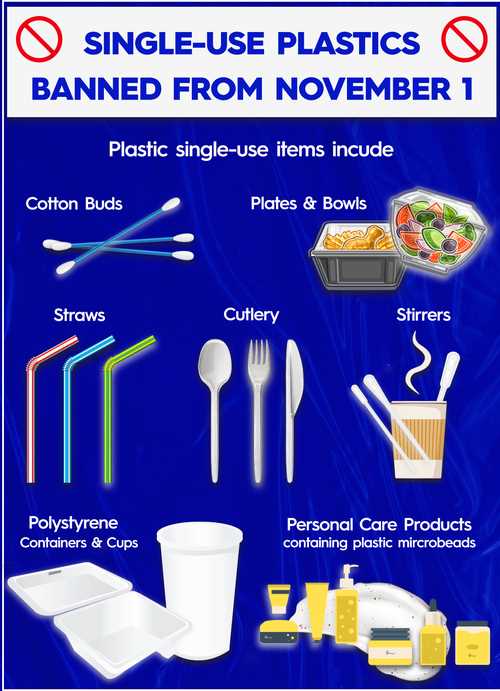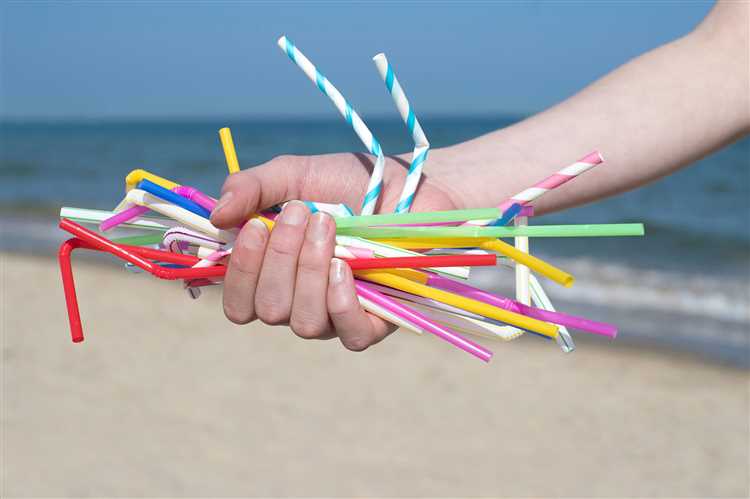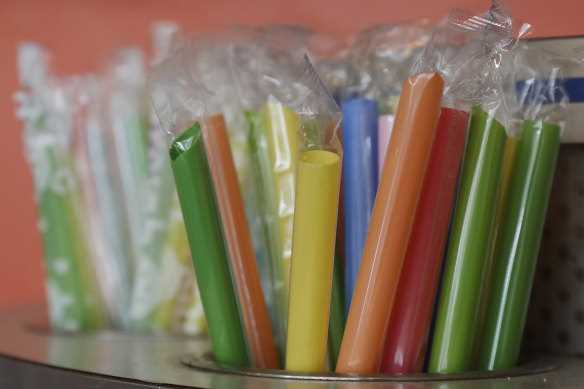
Plastic straws have long been a contentious issue globally due to their harmful impact on the environment. In recent years, there has been a growing awareness of the need to reduce single-use plastics, and plastic straws have been one of the major targets for change.
Australia, known for its stunning natural landscapes and diverse wildlife, has not been immune to this movement. In fact, the country has made significant strides towards reducing plastic waste, including the potential banning of plastic straws.
With the devastating effects of plastic pollution on marine life and ecosystems, many Australians have been eagerly awaiting a solution to the plastic straw problem. So, is Australia finally taking action to ban plastic straws? Let’s find out!
- Is Australia Banning Plastic Straws?
- Learn More About the Plastic Straw Ban in Australia
- The Impact of Plastic Straws on the Environment
- Plastic straws and ocean microplastics
- Alternatives to plastic straws
- Discover the Environmental Consequences of Plastic Straw Use
- Alternatives to Plastic Straws
- Explore Eco-Friendly Alternatives to Single-Use Plastic Straws
- 1. Paper Straws
- 2. Stainless Steel Straws
- 3. Bamboo Straws
- 4. Glass Straws
- The Status of Plastic Straw Bans Worldwide
- Find Out if Other Countries Are Also Banning Plastic Straws
- Q&A:
- Why is Australia considering banning plastic straws?
- What alternatives to plastic straws are being considered in Australia?
- Are there any cities in Australia that have already banned plastic straws?
- What is the timeline for Australia’s proposed ban on plastic straws?
- What can individuals do to reduce their use of plastic straws in Australia?
Is Australia Banning Plastic Straws?
Australia has been taking significant steps towards reducing plastic waste, and a potential ban on plastic straws is one of the measures being considered. Plastic straws have become a symbol of the single-use plastic problem, as they contribute to pollution and harm marine life. Many countries and cities around the world have already banned or restricted the use of plastic straws, and Australia is joining this global movement.
In 2018, the Australian government pledged to ban single-use plastics by 2025, including plastic straws. This commitment is part of a broader strategy to tackle plastic waste and protect the environment. Australia has been witnessing the devastating impacts of plastic pollution, particularly on its marine ecosystems, and recognizes the need for urgent action.
The ban on plastic straws will not only help reduce the amount of plastic waste generated but also encourage individuals and businesses to adopt more sustainable alternatives. Many eco-friendly alternatives to plastic straws, such as paper, bamboo, and metal straws, are available in the market. These alternatives are biodegradable, reusable, or recyclable, providing a more sustainable option to plastic.
The ban on plastic straws will not be implemented overnight. It will involve a phased approach, allowing individuals and businesses to transition to more sustainable options gradually. The Australian government is working with various stakeholders, including businesses, community organizations, and environmental groups, to ensure a smooth transition and minimize any potential disruptions.
While some people may find it inconvenient to give up plastic straws, it is essential to recognize the long-term benefits of this ban. By reducing plastic waste, Australia can protect its unique wildlife and ecosystems, preserve its pristine landscapes, and contribute to a cleaner and healthier planet overall.
Implementing a ban on plastic straws is just one step towards a more sustainable future. It requires collective efforts from individuals, businesses, and governments to reduce plastic consumption, promote recycling, and support the development of innovative solutions. By working together, we can create a world where plastic straws are no longer a threat to our environment.
Learn More About the Plastic Straw Ban in Australia

Australia, like many countries around the world, has taken steps to reduce plastic waste by implementing a ban on single-use plastic straws. The ban is part of a larger effort to minimize the environmental impact of plastic pollution and promote sustainability. Here are some key details about the plastic straw ban in Australia:
- The ban on plastic straws applies to all states and territories in Australia.
- It includes both single-use plastic straws and plastic straws provided with drink packaging.
- The ban encourages the use of sustainable alternatives to plastic straws, such as paper, metal, or reusable options.
- There are exemptions to the ban for people with disabilities or medical conditions who rely on plastic straws for drinking.
- The ban is part of a broader strategy to reduce plastic waste and promote recycling in Australia.
The plastic straw ban in Australia is just one of many initiatives aimed at reducing plastic pollution and promoting a more sustainable future. It serves as a reminder of the importance of individual and collective efforts to protect the environment and preserve natural resources for future generations.
The Impact of Plastic Straws on the Environment
Plastic straws have become a ubiquitous part of our society, used for everything from sipping iced coffee to enjoying a cocktail. However, their convenience comes at a great cost to the environment.
One of the major environmental issues caused by plastic straws is their contribution to marine pollution. These lightweight items often end up in rivers and oceans, where they pose a significant threat to marine life. Animals such as turtles, seabirds, and fish mistake plastic straws for food and can suffer serious injuries or even death as a result of ingestion or entanglement.
Plastic straws and ocean microplastics
Plastic straws are also a major contributor to the growing problem of ocean microplastics. Over time, plastic straws break down into smaller pieces, known as microplastics, which are less than 5mm in size. These microplastics can be ingested by marine organisms and enter the food chain, posing a potential threat to both aquatic life and humans who consume seafood.
In addition to their impact on marine ecosystems, plastic straws also contribute to overall plastic pollution. The production and disposal of plastic straws require significant amounts of energy and resources, contributing to greenhouse gas emissions and climate change. Many plastic straws end up in landfills, where they can take hundreds of years to decompose.
Alternatives to plastic straws

Recognizing the harm caused by plastic straws, many individuals and businesses are seeking alternatives to reduce their environmental impact. One popular alternative is the use of reusable straws made from materials like stainless steel, glass, or bamboo. These reusable options are more durable and can be easily cleaned and reused, reducing the amount of waste generated.
In addition to reusable straws, there is a growing trend towards using compostable or biodegradable straws made from materials such as paper, plant-based plastics, or even straw. These options break down more quickly in the environment, reducing their impact on natural ecosystems.
By choosing alternative options and reducing our reliance on plastic straws, we can make a significant difference in protecting the environment and ensuring a sustainable future for generations to come.
Discover the Environmental Consequences of Plastic Straw Use
Plastic straws, although small in size, have a big impact on the environment. Here are some key consequences of plastic straw use:
- Plastic Pollution: Plastic straws are one of the major contributors to plastic pollution in our oceans and landfills. They do not biodegrade and can take up to 200 years to break down. As a result, they often end up in our waterways, harming marine life and polluting our ecosystems.
- Wildlife Threats: Many marine animals, such as sea turtles, seals, and seabirds, mistake plastic straws for food. This can lead to choking, entanglement, or internal injuries, causing suffering and death. Plastic straws pose a significant threat to the existence of these vulnerable species.
- Microplastic Contamination: Over time, plastic straws break down into smaller pieces called microplastics. These microplastics can be ingested by plankton and other small organisms, entering the food chain and eventually reaching humans. The long-term health impacts of consuming microplastics are still being studied, but they are a growing concern.
- Carbon Footprint: Plastic straw production contributes to greenhouse gas emissions and climate change. Oil and gas are used in the production process, and energy is consumed during manufacturing. By reducing our reliance on plastic straws, we can reduce our carbon footprint and mitigate the effects of climate change.
These consequences highlight the urgent need to address the issue of plastic straw use. By transitioning to more sustainable alternatives, such as reusable or biodegradable straws, we can help protect our environment and the diverse ecosystems it supports.
Alternatives to Plastic Straws
As the push to reduce plastic waste continues to gain momentum, the popularity of alternative straws has been steadily rising. Here are a few sustainable options to consider:
1. Paper Straws: Made from materials like bamboo or wheat stalks, paper straws are biodegradable and compostable. They come in various designs and colors, making them a stylish and eco-friendly choice.
2. Stainless Steel Straws: Durable and reusable, stainless steel straws are a long-lasting alternative to plastic. They are easy to clean and can be a great option for individuals looking for a more sustainable choice.
3. Glass Straws: Glass straws are elegant and come in a range of colors and designs. They can be washed and reused, providing a more environmentally friendly option.
4. Bamboo Straws: Made from sustainable bamboo, these straws are biodegradable and can be reused multiple times. They have a natural aesthetic appeal and are a great choice for those looking for an eco-friendly alternative.
5. Edible Straws: Another innovative option is the use of edible straws made from materials like rice, pasta, or seaweed. These straws can be consumed after use, eliminating the need for disposal.
6. Silicone Straws: Silicone straws are durable, flexible, and can be easily cleaned. They can last for years, reducing the need for single-use plastic straws.
With the availability of these alternatives, it is becoming easier for individuals and businesses to make the switch from plastic straws to more sustainable options. By choosing these alternatives, we can significantly reduce the amount of plastic waste being generated.
Explore Eco-Friendly Alternatives to Single-Use Plastic Straws
As Australia moves towards phasing out single-use plastic straws, it’s important to find eco-friendly alternatives that reduce our reliance on plastic and help protect the environment. Here are some sustainable options to consider:
1. Paper Straws
Paper straws are a popular alternative to plastic straws. Made from renewable resources, such as paper and plant fibers, these straws are biodegradable and compostable. They offer a similar drinking experience to plastic straws and are available in various colors and patterns.
2. Stainless Steel Straws
Stainless steel straws are durable, reusable, and easy to clean. They are a great option for individuals who prefer a more solid and long-lasting straw. Available in different sizes and styles, stainless steel straws can be used over and over again, reducing waste and conserving resources.
3. Bamboo Straws
Compostable and biodegradable, bamboo straws are another eco-friendly alternative to plastic straws. They are made from natural bamboo grass, which is fast-growing and sustainable. Bamboo straws are not only reusable, but they also have a unique texture and appearance that adds a touch of natural beauty to your drinks.
4. Glass Straws
Glass straws are an elegant and sustainable option for those looking for a plastic-free alternative. Made from durable borosilicate glass, these straws are resistant to breakage and can be used again and again. They are easy to clean and can be safely used with both hot and cold beverages.
When choosing an eco-friendly alternative to single-use plastic straws, it’s important to consider factors such as durability, reusability, and biodegradability. By making the switch to these sustainable options, we can all play our part in reducing plastic waste and protecting our oceans and marine life.
| Straw Type | Advantages |
|---|---|
| Paper Straws | Biodegradable and compostable |
| Stainless Steel Straws | Durable and reusable |
| Bamboo Straws | Compostable and sustainable |
| Glass Straws | Plastic-free and elegant |
The Status of Plastic Straw Bans Worldwide
Plastic straw bans are becoming more and more common around the world as governments and businesses strive to reduce plastic waste and protect the environment. Australia is just one of many countries that have implemented or are considering implementing a ban on plastic straws.
In the United Kingdom, a ban on plastic straws and other single-use plastic items came into effect in April 2020. This ban prohibits the sale and distribution of plastic straws, except for those necessary for medical purposes or for people with disabilities. Scotland had implemented a ban on plastic straws even earlier, in October 2019.
In Europe, several countries have also taken steps to ban plastic straws. France banned all disposable plastic tableware, including straws, in 2020. Italy has banned the use of plastic straws, stirrers, and cotton buds as of January 1, 2021. Other European countries, such as Germany and Spain, have also implemented bans or are considering doing so.
Outside of Europe, Canada has announced its intention to ban single-use plastics, including plastic straws, as early as 2021. In the United States, various cities and states have implemented their own plastic straw bans, including Seattle and California. Additionally, major companies like Starbucks and McDonald’s have also pledged to phase out or eliminate plastic straws from their establishments.
While the status of plastic straw bans varies from country to country, there is a strong global movement towards reducing plastic waste and finding sustainable alternatives. As awareness about the environmental impact of plastic straws grows, more countries are likely to adopt bans or restrictions on their use.
Ultimately, the goal is to encourage individuals to switch to reusable or eco-friendly alternatives, such as metal, bamboo, or paper straws. By reducing our reliance on plastic straws, we can help protect marine life, reduce plastic pollution, and create a more sustainable future.
Find Out if Other Countries Are Also Banning Plastic Straws
It’s not just Australia that is taking action to reduce the use of plastic straws. Many other countries around the world are also implementing bans or restrictions on plastic straws in order to combat plastic pollution and protect the environment.
One of the first countries to introduce a ban on plastic straws was the United Kingdom. In 2018, the UK announced plans to ban the sale and distribution of plastic straws, along with other single-use plastics such as cotton buds and drink stirrers. The ban came into effect in April 2020.
In Canada, several provinces have implemented their own bans or restrictions on plastic straws. For example, the province of British Columbia has banned the use of plastic straws in all restaurants, bars, and cafes unless requested by customers. Other provinces, such as Nova Scotia and Prince Edward Island, have also implemented similar regulations.
Several countries in Europe have also taken action against plastic straws. France, for instance, banned the use of plastic straws in July 2021 as part of its wider efforts to reduce plastic waste. Other European countries that have implemented restrictions or bans on plastic straws include Belgium, Germany, and Italy.
Outside of Europe, countries such as Taiwan, New Zealand, and Costa Rica have also implemented bans or restrictions on plastic straws. In Taiwan, plastic straws were banned in 2019, while New Zealand announced plans to phase out single-use plastic items, including straws, by 2022. Costa Rica has also implemented a ban on plastic straws, aiming to completely eliminate their use by 2021.
These are just a few examples of the many countries around the world that are taking action to reduce plastic straw usage. As awareness of the environmental impact of plastic waste grows, it is likely that more countries will join this movement and introduce their own bans or restrictions on plastic straws.
It is important for individuals to support these initiatives by choosing reusable alternatives to plastic straws, such as metal, bamboo, or glass straws. By making small changes in our everyday habits, we can all contribute to a cleaner and more sustainable future.
Q&A:
Why is Australia considering banning plastic straws?
Australia is considering banning plastic straws due to their harmful impact on the environment. They contribute to plastic pollution and can harm marine life.
What alternatives to plastic straws are being considered in Australia?
Australia is considering alternatives such as paper straws, reusable straws made from materials like stainless steel or bamboo, and even edible straws made from materials like pasta or seaweed.
Are there any cities in Australia that have already banned plastic straws?
Yes, several cities in Australia have already implemented bans on plastic straws. For example, Sydney, Melbourne, and Brisbane have banned plastic straws in certain venues or events.
What is the timeline for Australia’s proposed ban on plastic straws?
There is no specific timeline for the proposed ban on plastic straws in Australia. However, discussions and consultations are currently taking place to determine the best course of action.
What can individuals do to reduce their use of plastic straws in Australia?
Individuals in Australia can take various steps to reduce their use of plastic straws, such as using reusable straws, refusing straws when ordering drinks, or opting for alternative options like drinking directly from the cup.